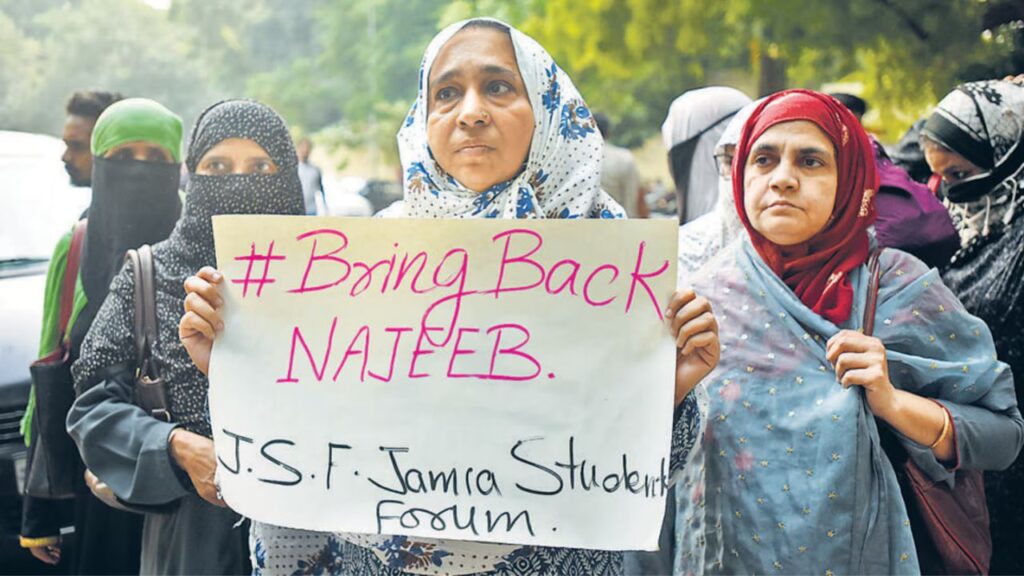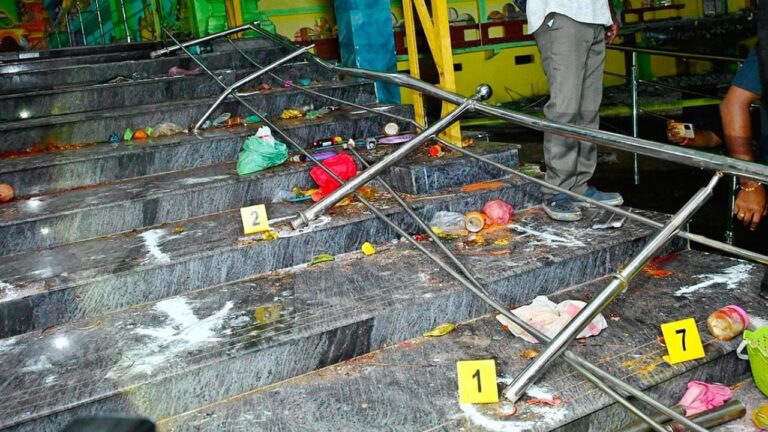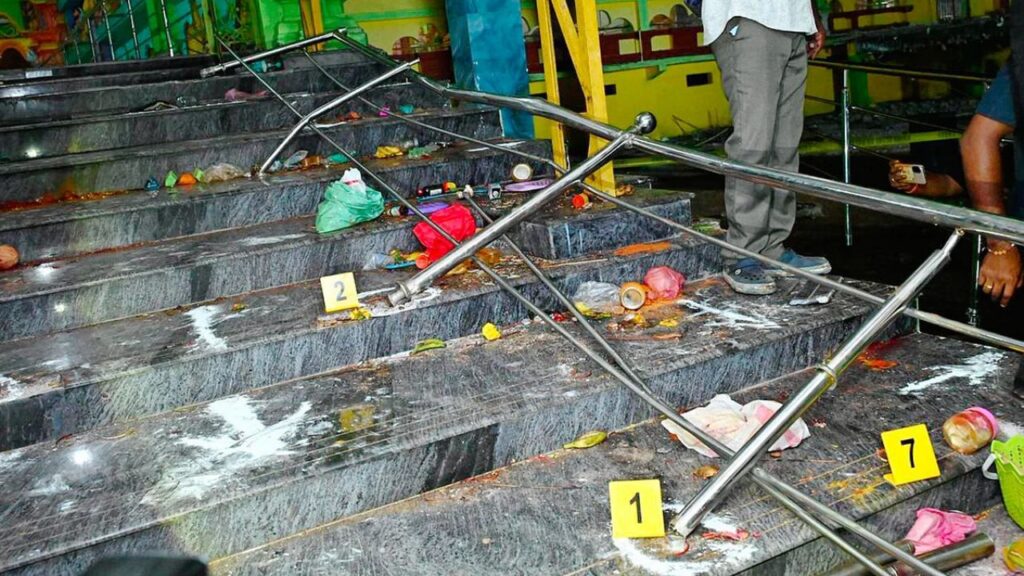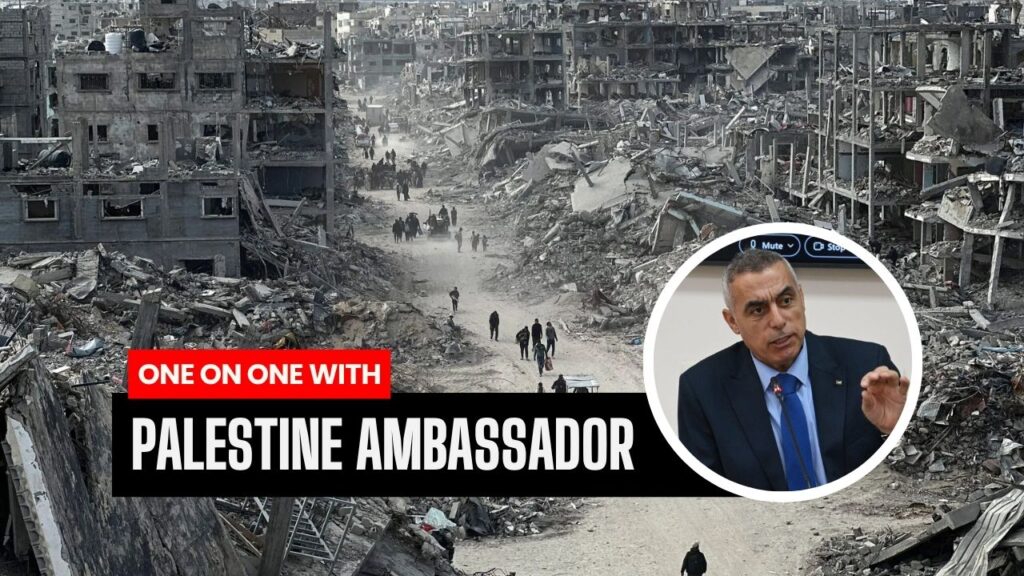A Delhi court on Monday gave a go-ahead to the Central Bureau of Investigation (CBI) to close its probe into the high-profile disappearance case of Jawaharlal Nehru University (JNU) student Najeeb Ahmed, nearly nine years after he went missing under mysterious circumstances. The court, however, added that the case could be reopened if any fresh evidence were to emerge in the future.
Additional Chief Judicial Magistrate Jyoti Maheshwari accepted the closure report filed by the CBI and noted that the agency’s exhaustive efforts to trace Ahmed had not yielded any substantial outcome. While allowing the case to be closed for now, the judge also stated that if any new information or evidence came to light, the matter could be revived.
Najeeb Ahmed, a 27-year-old M.Sc. Biotechnology student at JNU, went missing on October 15, 2016, just a day after an alleged scuffle with members of the Akhil Bharatiya Vidyarthi Parishad (ABVP), the student wing of the Rashtriya Swayamsevak Sangh (RSS). His disappearance sparked protests across the country and raised uncomfortable questions about student safety, political influence on campuses, and police inefficiency.
The CBI, which took over the case from Delhi Police in 2017 after a Delhi High Court order, had filed its closure report back in 2018. The report cited that no conclusive evidence was found regarding Ahmed’s whereabouts despite several efforts, including analysis of call records, CCTV footage, and questioning of suspects and witnesses.
Ahmed’s mother, Fatima Nafees, had opposed the CBI’s closure report and accused the agency of not doing enough. Her legal counsel argued before the court that the case was politically sensitive and that the investigating agency had “succumbed to pressure” from higher authorities. They demanded that the investigation be continued, citing gaps in the inquiry.
“This is not just about my son, this is about every student who dares to speak up or resist injustice. We wanted answers, not silence,” Fatima Nafees had told the media outside the courtroom after an earlier hearing.
In its report, the CBI told the court that it had explored all possible leads but had failed to find any actionable evidence. It also stated that Ahmed had visited Safdarjung Hospital after the alleged assault by ABVP-affiliated students, but had refused medical treatment. The investigating officer said that Ahmed was advised to get a medico-legal case (MLC) prepared, but he returned to the hostel instead and never followed up on the advice.
The agency also pointed out that records of his hospital visit were not available, and the testimony of the hospital staff was not corroborated due to the lack of documentation.
Najeeb’s last known movement was reportedly captured on CCTV, which showed him leaving the JNU campus in an auto-rickshaw. That footage became a key piece of evidence, but it did not lead to any breakthrough. Despite tracking the route and questioning auto-rickshaw drivers and potential witnesses, investigators hit a dead end.
The disappearance occurred just a day after a physical altercation between Ahmed and a few students at his hostel Mahi-Mandavi. The scuffle reportedly broke out during a routine discussion that escalated.
According to Ahmed’s roommate, there had been a heated exchange of words, and soon after, Ahmed was allegedly assaulted. Fatima Nafees, in her FIR, said her son had called her late at night to say that “something bad” had happened.
On October 14, 2016, Ahmed had returned to the university after the holidays. That night, he reportedly spoke to his mother on the phone and sounded worried. The next morning, his roommate informed Fatima that there had been a fight and her son had sustained injuries. Alarmed, she traveled from Bulandshahr in Uttar Pradesh to Delhi to meet him. By the time she reached JNU, Ahmed had vanished.
The Delhi Police initially handled the investigation, but were unable to make significant progress. The case soon attracted media attention and nationwide protests, led by student groups and civil rights activists who accused the authorities of negligence and bias.
Under mounting pressure, the Delhi High Court transferred the investigation to the CBI in May 2017. The court had also directed that regular updates be provided to Ahmed’s family. Over the next year, the CBI carried out searches, interrogated several individuals, including members of the ABVP, and checked possible leads across different states. It even offered a reward for any information related to Ahmed’s whereabouts. Despite these efforts, the probe remained inconclusive.
In 2018, the CBI filed a closure report, citing lack of evidence. However, it could not submit it without court permission due to an earlier order by the Delhi High Court. That permission was finally granted this week, ending nearly a decade of official investigation.
The court’s decision has once again ignited debate over institutional accountability and justice for the families of missing persons. Student activists and human rights groups have expressed disappointment over the closure, calling it a “systematic failure.”
“This is not closure. This is erasure. A young student disappears from a central university, and we are told there are no answers. It’s heartbreaking and enraging,” said one JNU student during a candlelight vigil on campus Monday evening.
Fatima Nafees, who has been at the forefront of protests and court battles since her son’s disappearance, has vowed to continue her fight. “I have not given up, and I never will. They may close the file, but my search will not end. I still believe I will find my son, or the truth about what happened to him,” she told reporters on Monday.
Meanwhile, the court, while allowing the closure, maintained that the door remains open for future inquiry if any credible evidence arise. For now, though, the disappearance of Najeeb Ahmed remains one of India’s most haunting unresolved student disappearance cases, a painful reminder of justice delayed, if not denied.

















